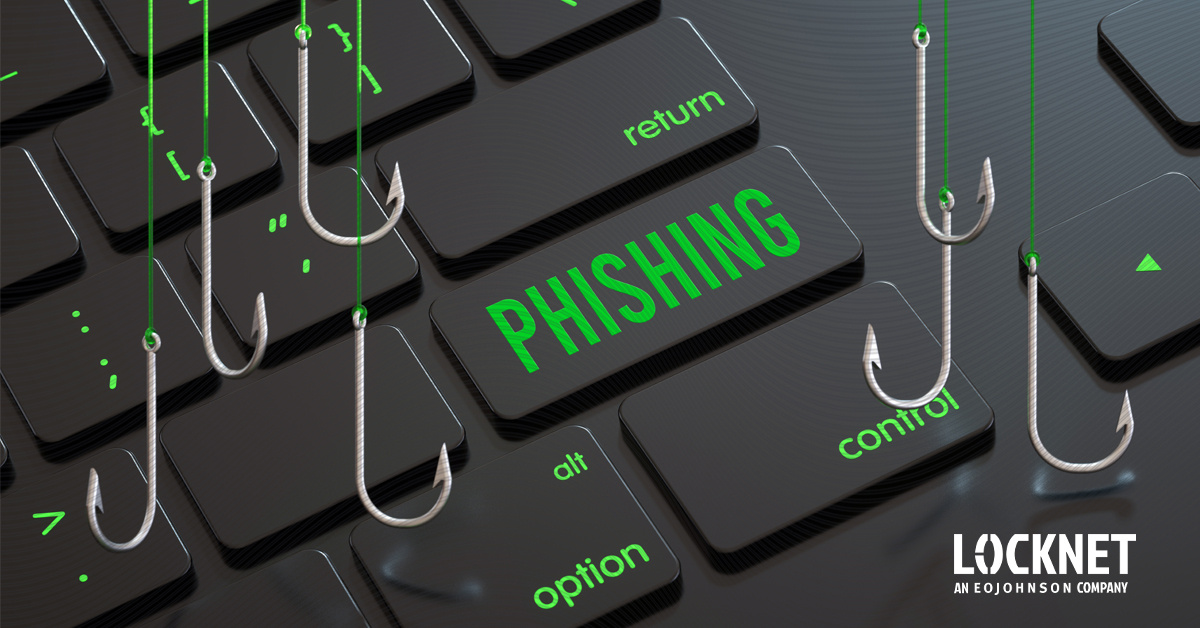Industries We Serve
World Class IT Support & Service
Real People. Right Now.
About Locknet® IT Services
From the first hello, the Locknet® team is dedicated to serving you and your needs.
Real People. Right Now.
From the first hello, the Locknet® team is dedicated to serving you and your needs.


Phishing is a common method used by cybercriminals to attempt to capture your information, and there are many myths about phishing attacks that could prevent you from having optimal protection. Never fear, the experts at Locknet® Managed IT are here to do some phishing myth-busting. Armed with this vital information, you'll be able to shore up your defenses against these digital bad actors, and ensure your business is well-positioned to ward off these cyber attackers.
Many people believe that their Microsoft email has enough protection to stop a phishing attack. Sadly, that's just not true. Industry experts find time and again that Secure Email Gateways can capture problematic attachments with regularity. But the scale, sophistication, and scope of phishing attacks may be far more than your email security can handle. In fact, as many as half of the phishing attempts with malicious hyperlinks bypass these protections and wind up in your employees' email boxes. That puts your passwords and other credentials at risk, essentially giving these cybercriminals the keys to your entire network.
2. Phishing attempts are obvious.There is often a false sense of security within organizations; staff often think they can easily identify a phishing attack. But that's just not true. Phishers have gotten very good at making their attacks look totally legitimate, often fooling even the most careful of users. Employees are often busy and in their haste to get the job done, they may miss telltale signs of a phishing attack, including a URL that is very close to the legitimate one. Secure Email Gateways are good at identifying known threats, but to assume the threat landscape is static is incredibly dangerous. In reality, the threat landscape is always evolving, and phishers are becoming more sophisticated with every attack. If your Secure Email Gateway doesn't know a threat exists with a new URL, it simply won't block it. And if the attack doesn't contain any flagged keywords, chances are your gateway won't stop it either.
3. Younger generations are less likely to fall victim to phishing attemptsWho falls victim to phishing attempts? You might think digital natives or employees from Generation Z are too savvy to fall for a phishing attempt, but you would be mistaken. Sure, they may have practically been born with a computer in hand, but digital natives are shown in research to be more trusting of email attachments and links in emails than more seasoned workers from generations such as Baby Boomers, Gen X, and Millennials. More, as this generation of digital natives takes on new jobs with new organizations, they are likely to enter the workplace without knowledge of normal business processes—making them easier pickings for scammers, who often exploit this vulnerability.
4. Only big businesses are targeted with phishing attemptsIt's all too easy for small and enterprise-sized businesses to feel like they're safe and flying under the radar of digital threats. But that's simply false. Sure, big businesses may have larger wallets, but small to medium-sized businesses are just at risk. Phishers know that small businesses, solopreneurs, and enterprise-sized businesses often don't have the same robust protections in place to prevent phishing attacks from finding their unsuspecting victims. But research shows well over a third of all data breaches affect small and enterprise-sized companies. More, over 60% of small businesses have had at least one cyberattack in the past year, including ransomware attacks as a result of successful phishing attempts. No company of any size can let its guard down when it comes to phishing attacks and other cybercrimes.
When it comes to preventing and controlling digital threats, having the right network security partner in place can make all the difference. Even for small and medium-sized companies who want to augment their existing resources, a network security partner can shore up defenses and keep you and your employees trained and on top of the latest, emerging threats. Contact us to know more about how we can help protect you from phishing attacks and other threats in the digital landscape.
Managed IT

Onalaska, WI Waterloo, IA Wausau, WI Eau Claire, WI Burnsville, MN
You are now leaving locknetmanagedit.com. Please check the privacy policy of the site you are visiting.